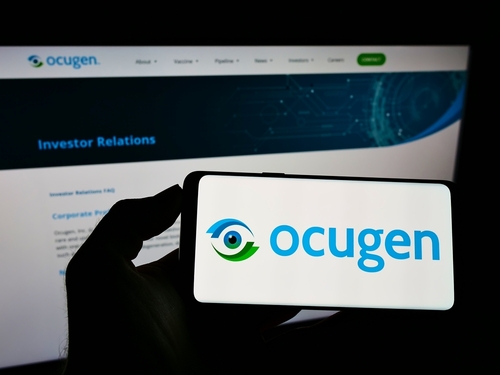
Malvern, Penn.-based Ocugen, Inc. announced Monday it had submitted an investigational new drug application with the U.S. Food and Drug Administration to initiate Phase 1 clinical trials for the treatment of diabetic macular edema.
The drug, OCU200, is a fusion protein with a distinct mechanism of action. The application is a regulatory milestone that fulfills the company’s commitment to file the application for OCU200 within the first quarter of 2023, the company said.
“Today’s achievement is an important step towards fulfilling our mission to bring novel therapeutics to address limitations of the current standard of care or unmet medical needs in hard-to-treat blindness diseases,” said Dr. Arun Upadhyay, Chief Scientific Officer at Ocugen. “We are encouraged by the potential for OCU200 to provide a new treatment option for the significant percentage of people living with DME, including non-responders to the current standard of care.”
The Phase 1 clinical study will assess the administration of OCU200 alone or in combination with an approved anti-VEGF therapy in patients with diabetic macular edema. The company said it intends to pursue additional indications for OCU200 to potentially treat diabetic retinopathy and wet age-related macular degeneration, which affects nearly 9 million Americans.
The company estimates that 745,000 Americans are affected with diabetic macular edema and that more are expected to have the vision-threatening disease as the number of people with diabetes increases. People with diabetic macular edema suffer from blurriness in their vision and progressive vision loss as the disease progresses.
OCU200 is a novel fusion protein consisting of human transferring linked to human tumstatin that exerts anti-proliferative, anti-inflammatory, and anti-oxidative effects by selective targeting to the retinal and choroidal tissues.